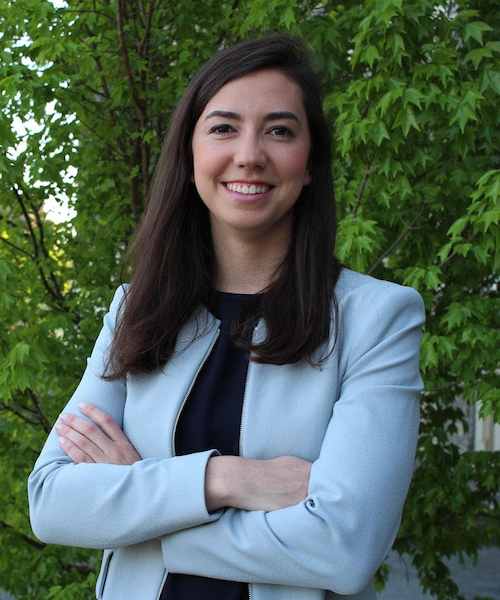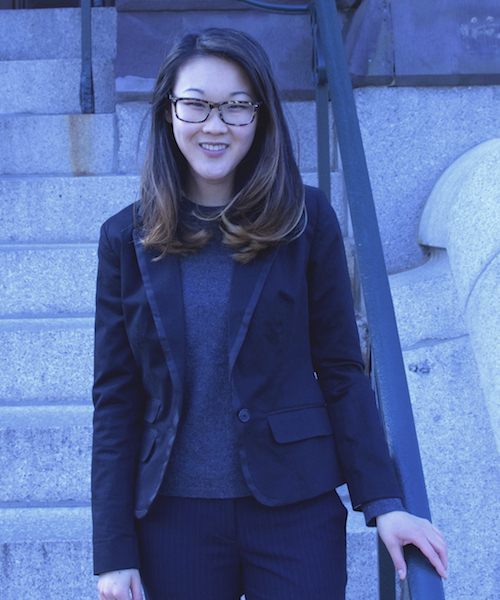
The Behind-the-Scenes Conversations
Andrea Su | 2019年8月30日
注:中英文网站上发表的学生日志均为英文。
Throughout this year, I often felt like I was reenacting one of the characters in the ‘Blind Men and an Elephant’ parable. I was constantly discovering a new area or topic in U.S.-China relations that I had never thought about or studied before: artificial intelligence, social credit system, investment ‘negative’ lists etc. My understanding of U.S.-China relations evolved through a combination of U.S.-China Student Fellows programming and my own trips to conferences at West Point, the Reagan National Defense Forum, and the Naval Academy. These experiences never failed to spark new questions or to reveal to me that while so much has been said and done regarding the bilateral relationship, there is still so much more to learn and do.
In our conferences in Washington and Beijing, it was startlingly noticeable how belligerently American and Chinese public officials spoke of each other. When even professional diplomats stray away from the typical restrained and cordial responses to tough questions about the status of the relationship, it shows how far the U.S.-China relationship has diverged in recent years. It’s been said before that “When both sides are talking past each other, nothing meaningful is really being said.” Though their counterparts were not in the room with us during these off-the tape discussions, it was easy to imagine how conversations at the working-to-senior levels were progressing: both sides adamantly presenting their side of the story but not really taking in the other side’s accounts.
Amidst the ongoing U.S.-China trade dispute, there continues to be vigorous debate about the current direction of U.S. foreign policy towards China. On the economic front, there appears to be broad support for U.S. sanctions against Chinese economic practices, but it is less clear whether the American public supports a trade war. At the societal level, there appears to be shared concern about Chinese influence and interference in schools and communities, but that sentiment too is tempered by fears of U.S. sensationalism and mis-evoking memories of McCarthyism. Security-wise, there is broad agreement on the security challenges that threaten core U.S. interests but not enough convergence on strategy.
The perception that the current U.S. policy towards China represents the crystallizing consensus of those in the Beltway is unfounded. Now more than ever before, divergent views on the nature of China’s challenge, role, and the appropriate U.S. response abound in policy-making and academic circles. These perspectives are welcome and much needed. As both the United States and China come to term with the development of bilateral relations, my hope is that we will begin to see the emergence of a movement that calls for a more constructive, mutually sustainable U.S.-China relationship moving forward.
Looking forward, various issues including Huawei sanctions, competing ‘entity’ lists, the upcoming 2020 Taiwan presidential elections, and North Korea denuclearization will continue to serve as litmus tests for bilateral relations and provide valuable insights on areas to improve. As graduates of the U.S.-China Student Fellows program, our responsibility is to dig deeper and think harder about the current direction of bilateral relations. Our challenge is to project and formulate a framework and new paradigm for the future. Despite all that I have learned, I admit that I do not know what exactly this new policy will look like. I only know that what we have isn’t it. We can do better. We deserve and need better.
When I applied to the U.S.-China Student Fellows Program last year, I was drawn by the opportunity to engage with various American and Chinese stakeholders who are actively working to resolve pressing issues in the relationship. It is only when I began the fellowship that I realized that wasn’t the best part of the program. Not even close. The true value of this program lies in the genuinely thoughtful disagreements and conversations that stem from the composition of a such a unique cohort dynamic: a dozen curious, and compassionate American and Chinese scholars from diverse backgrounds who are as assured in their experiences as they are open to broadening them. Bring these individuals together, toss them into any setting: a university classroom, a ministry conference room, the hutongs of Beijing, or the streets of Georgetown, and watch the learning happen. And learn we did, cultural and societal expectations, geopolitics, worldviews, artificial intelligence black box systems, no issue was left untouched. While we didn’t quite solve the fundamental issues at the heart of the current U.S.-China relationship, we at least showed through our engagement that those disagreements were not as intractable as they seemed. No misunderstanding is too deep to unravel and no divide too far to bridge. Yes, the fellows are the real stars of this program.
I am most thankful to this program because it allowed me to meet eleven other exemplary student leaders who are already and will continue to make their mark on U.S.-China relations. They were my teachers and mentors, my 良师益友。My dearest Fellows, you all are the real MVPs. The organic friendships that formed amongst my cohort have shown me that just like at the individual level, constructive engagement remains key to managing U.S.-China relations at the national and global level. I look forward to expanding upon my experiences in this program through a career in public service and I am confident that our friendships and continued conversations can lay the foundation for a new era in U.S.-China relations.

Andrea Su | 2019年8月30日

Junming Cui | 2019年8月30日

Yihong Shi | 2019年8月30日

Zhaoqing Li | 2019年8月30日

Isabelle Hupez | 2019年8月29日

Ivan Solomon | 2019年8月29日

Jozanne Murphy | 2019年8月29日

Xiaogu Xu | 2019年8月29日

Aaron Baum | 2019年8月28日

Chang Fan | 2019年8月28日

Lakshmi Iyengar | 2019年8月28日